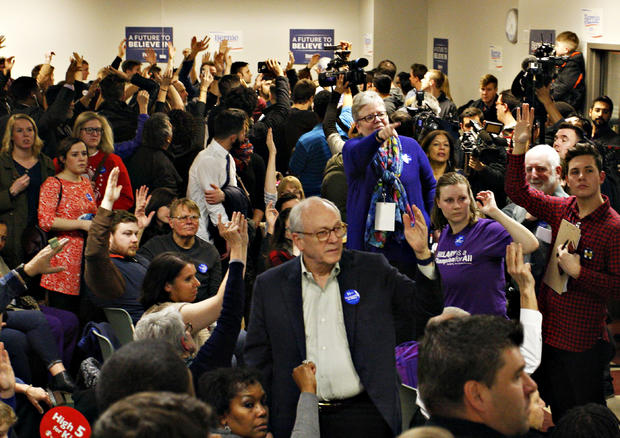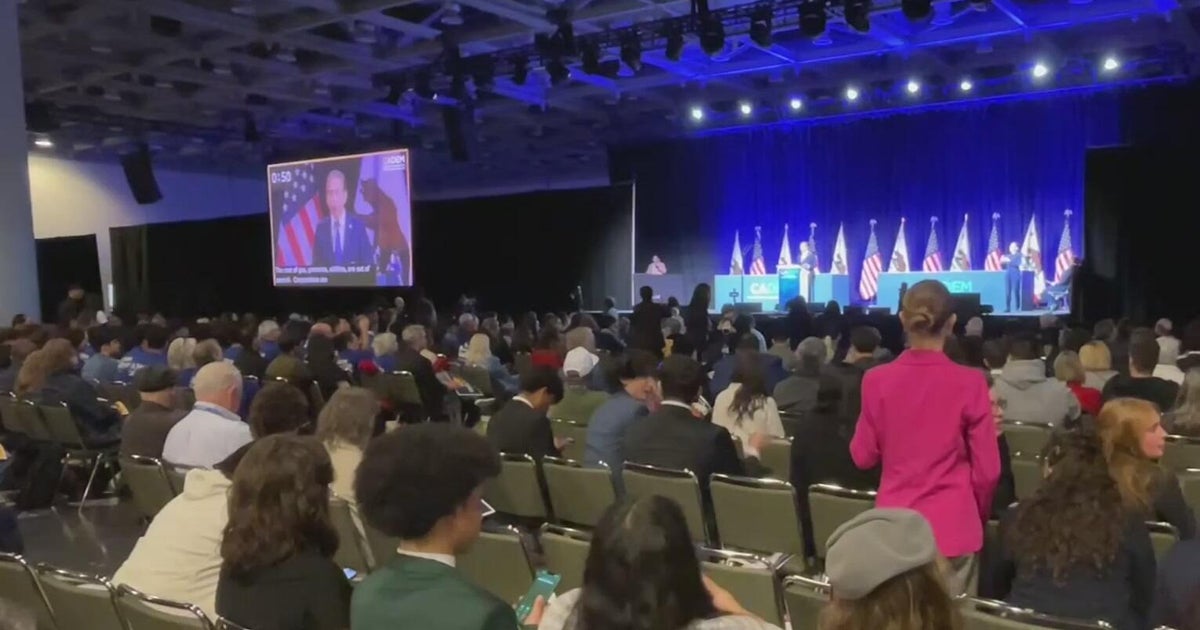Virtual caucus plans in Iowa and Nevada hit a snag
The virtual caucus plans Iowa and Nevada drafted have hit a snag. Members of the Democratic National Committee (DNC) and security experts are raising concerns about the security of the vendors being considered to host the virtual caucuses.
Both states, which are the earliest states to hold caucuses in 2020, have drafted plans to allow voters to participate by phone if they're not able to attend a caucus.
Nevada and Iowa have both proposed adding forms of "tele-caucusing" to their nominating process to fulfill the DNC's requirement for increased participation in the caucuses, but the plans have not yet been formally approved. The process involves ranking a person's top choices for the Democratic nominee over the phone.
Neither state party has confirmed which vendors they will use for the caucuses or how they will securely tabulate the votes.
Last Thursday in San Francsico, the DNC's body for approving delegate plans, the Rules and Bylaws Committee (RBC), held a closed-door session to speak with the state parties about technology concerns.
In the meeting, DNC party officials talked with the state parties about the disclosure on a conference call earlier this month that a security expert had detected a vulnerability on the website of a potential virtual caucus vendor being considered. A conference call itself was not hacked, according to three sources familiar.
The specter of hacking haunts the party after the 2016 DNC breach that resulted in the inadvertent revelation of embarrassing DNC staff emails and the forced resignation of DNC chair Debbie Wasserman Schultz.
Since the meeting in San Francisco, the DNC and the state parties have been holding a daily conference call to discuss how to move forward with the plans before the September 13 deadline.
Nevada's Democratic Party spokeswoman Molly Forgey told CBS News in a statement that the state is committed to hosting "the most accessible, expansive caucus process yet in 2020." She said the state party is working with the DNC and its Rules and Bylaws Committee and is "confident that we will be prepared to host the most successful caucuses in our state's history."
The states presented the virtual caucus plans in June in Pittsburgh. The members of the Rules and Bylaws Committee expressed concerns with both states' plans but ultimately said the plans were in "conditional compliance," meaning that states could move forward with their plans as long as they worked to address the concerns raised by the members.
The DNC had instructed states to either hold a primary or find ways caucuses can incorporate more people. Because caucuses take place at an appointed time and tend to take longer, they tend to attract far fewer voters than primaries do.
"There has always been this tension between those who want to hold primaries and those who like caucuses," DNC Member Don Fowler said, adding, "this is nothing new."
Several states have chosen to abandon their caucuses in favor of holding primaries. Washington, Alaska, Maine, Minnesota, Colorado, Nebraska, Utah, and Idaho are holding primaries in 2020.
Iowa and Nevada have opted to hold their storied caucuses with modifications that are geared toward increasing participation, but it's clear that the modifications remain a work in progress.



